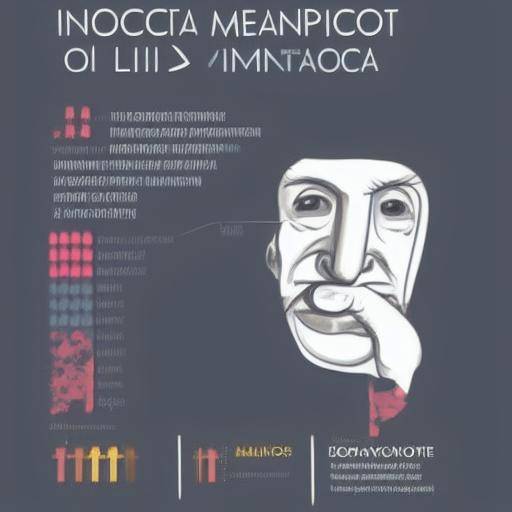
The search for work-life balance is a common concern in today's society. The accelerated pace, labor and personal demands, and the growing awareness of mental well-being have brought greater attention to this issue. In this article, we will explore the fundamental role of personal values in achieving work-life balance and its impact on personal well-being. From its history and evolution to future trends and practical advice, we will thoroughly analyze how personal values influence this crucial balance, providing a comprehensive, strategically optimized and attractive view for readers.
Introduction
In today's world, the concept of work-life balance has gained unprecedented relevance. The need to find a midpoint between working and personal life has led to a growing interest in the role of personal values as a guide to achieving such a balance. In this article, we will delve into how our personal values influence the way we manage and prioritize our work and personal responsibilities, and how this impacts directly on our well-being.
History and Background
Work-life balance is not a new concept, but its evolution has been significant over time. From the emergence of the Industrial Revolution to the current digital era, there have been profound changes in how people conceive and manage their time and responsibilities. We will explore the historical evolution of this concept, from its origins to modern trends, highlighting relevant milestones and influential personalities in its development.
Origins of the Concept
During the Industrial Revolution, the working days were long and exhausting, leaving little time for personal life. Over time, labour movements and legislation began to advocate for better quality of life, introducing concepts such as the eight-hour work day and the weekends. In recent decades, digitalization and constant access to technology have further blurred the lines between work and personal life, making work-life balance more important than ever.
Contemporary Evolution
At present, work-life balance is a central theme in discussions on welfare and productivity. Companies are increasingly recognizing the importance of this balance and are implementing policies such as flexible work and telework. People are also taking proactive measures to align their work and personal lives with their fundamental values.
Deep analysis
Benefits of Work-Life Balance
A good work-life balance contributes to the improvement of mental and physical well-being, increases labor and personal satisfaction, and improves productivity. People who achieve this balance are less likely to experience burnout and more capable of managing stress.
Challenges of Work-Life Balance
Despite its benefits, achieving a work-life balance can be challenging. Labour demands, social expectations and pressure to meet multiple roles can make it difficult to maintain this balance. Moreover, the lack of organizational support or flexible policies can exacerbate these challenges.
Personal Values Rol
Personal values are fundamental principles that guide our decisions and behaviors. In the context of work-life balance, these values determine how we prioritize our responsibilities and time. For example, someone who values the family above all can choose jobs with flexible schedules or reduce their working hours to spend more time with their loved ones.
Comprehensive review
Practical Applications
To integrate personal values in the management of work-life balance, it is essential to clearly identify those values and how they are reflected in our daily decisions. Some strategies include:
- Self-knowledge: Carry out a self-evaluation to identify the most important personal values.
- Priorities: Align daily and work activities with these values.
- Negotiation at work: Talk to employers about the possibility of flexible hours or remote work.
- Clear Limits: Establish and maintain limits between work and personal life.
- Personal care: Include time for personal care and rejuvenating activities.
Best Practices
We will compare different approaches and offer a detailed analysis of the pros and cons of each, providing valuable information for those seeking to improve their own balance. For example, teleworking can offer flexibility, but it can also blur the limits between work and personal life if not properly managed.
Comparative analysis
Influence of Personal Values in Different Contexts
Through concrete examples, we will compare and contrast the influence of personal values in work-life balance in different contexts and scenarios. For example, in collectivist cultures, the values of the community and the family can prevail over the individual, affecting the way work-life balance is perceived and achieved.
Similarities and Variances
We will examine the similarities and differences in the strategies and approaches used to achieve a sustainable balance. This will include an analysis of how different industries and sectors address this challenge, and how personal values can vary depending on the cultural and professional environment.
Practical Tips and Accessible Advice
Integration of Personal Values
We will provide practical advice, supported by evidence and experience, on how to integrate personal values in the management of work-life balance. We will use numbered lists to facilitate understanding and provide detailed explanations to support these practical recommendations.
- Securities Identification: Conduct reflection and self-assessment exercises to identify the most important values.
- Targets established: Create specific and realistic goals that reflect these values.
- Open communication: Keep an open communication with employers and loved ones about personal needs and priorities.
- Use of Digital Tools: Leverage apps and tools that help manage time and set clear limits between work and personal life.
Perceptions of Industry and Expert Reviews
Opinions of Experts
We will gather insights from industry experts, including interviews and relevant quotations, to provide an informed perspective on how personal values influence work-life balance. We will analyze the trends of the sector and present predictions for the future in relation to this topic.
Future Trends
We will present predictions on how the concept of work-life balance will evolve in the future, considering factors such as technology, labour policies and cultural changes. We will explore how organizations can adapt to these trends to better support their employees.
Conclusion
In short, personal values play a crucial role in seeking work-life balance. Aligning our decisions and priorities with our fundamental values not only improves our personal well-being, but also allows us to be more productive and satisfied in our work and personal lives. With a clear understanding of the importance of personal values and the application of practical strategies, we can achieve a more sustainable and rewarding work-life balance.
Frequently asked questions
- **What are personal values and how do work-life balance affect?**Personal values are fundamental principles that guide our decisions and behaviors. They affect work-life balance by influencing how we prioritize our responsibilities and time.
- **What are some examples of personal values that can influence work-life balance?**Examples include family, health, integrity, happiness and personal growth. These values can guide decisions on how to balance work and personal life.
- **How can I identify my personal values?**You can identify your personal values through reflection, self-evaluations and valuation exercises that help you determine what is most important for you.
- **What strategies can help integrate personal values into the management of work-life balance?**Strategies include securities identification, goal setting, open communication and the use of digital tools to manage time and set limits.
- **How can companies support the work-life balance of their employees?**Businesses can support through flexible work policies, welfare programs, open communication and an organizational culture that values the well-being of employees.
- **What future trends are expected in relation to work-life balance?**Greater approaches are expected in teleworking, more flexible labour policies, and greater integration of technology to support work-life balance.
With these knowledge and tools, we can move towards a healthier and more meaningful work-life balance, aligned with our personal values and able to sustain our long-term well-being.
















































